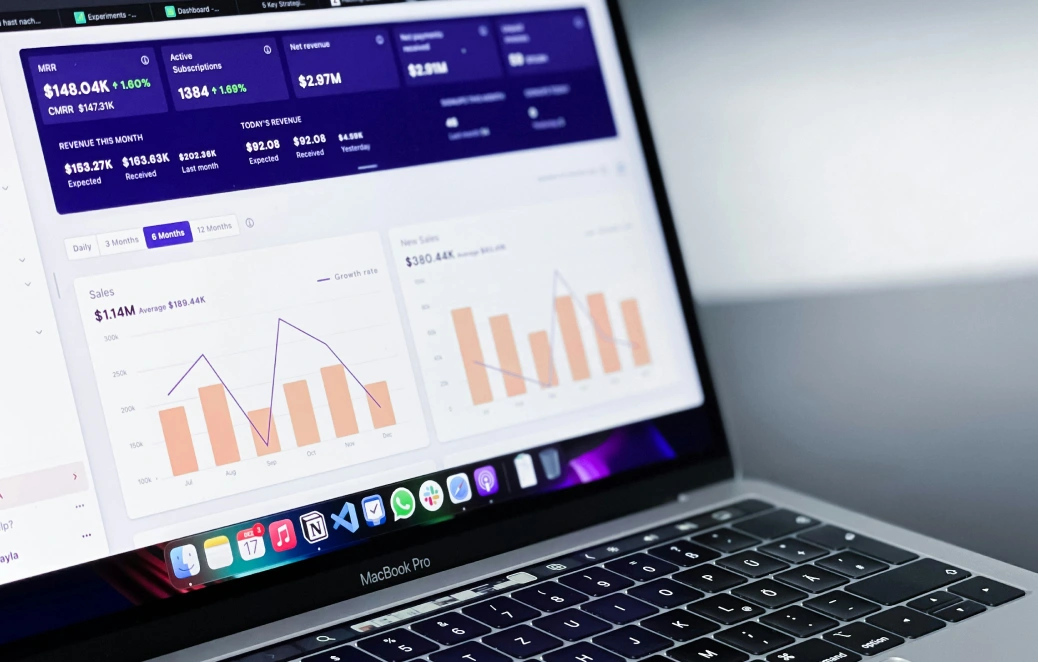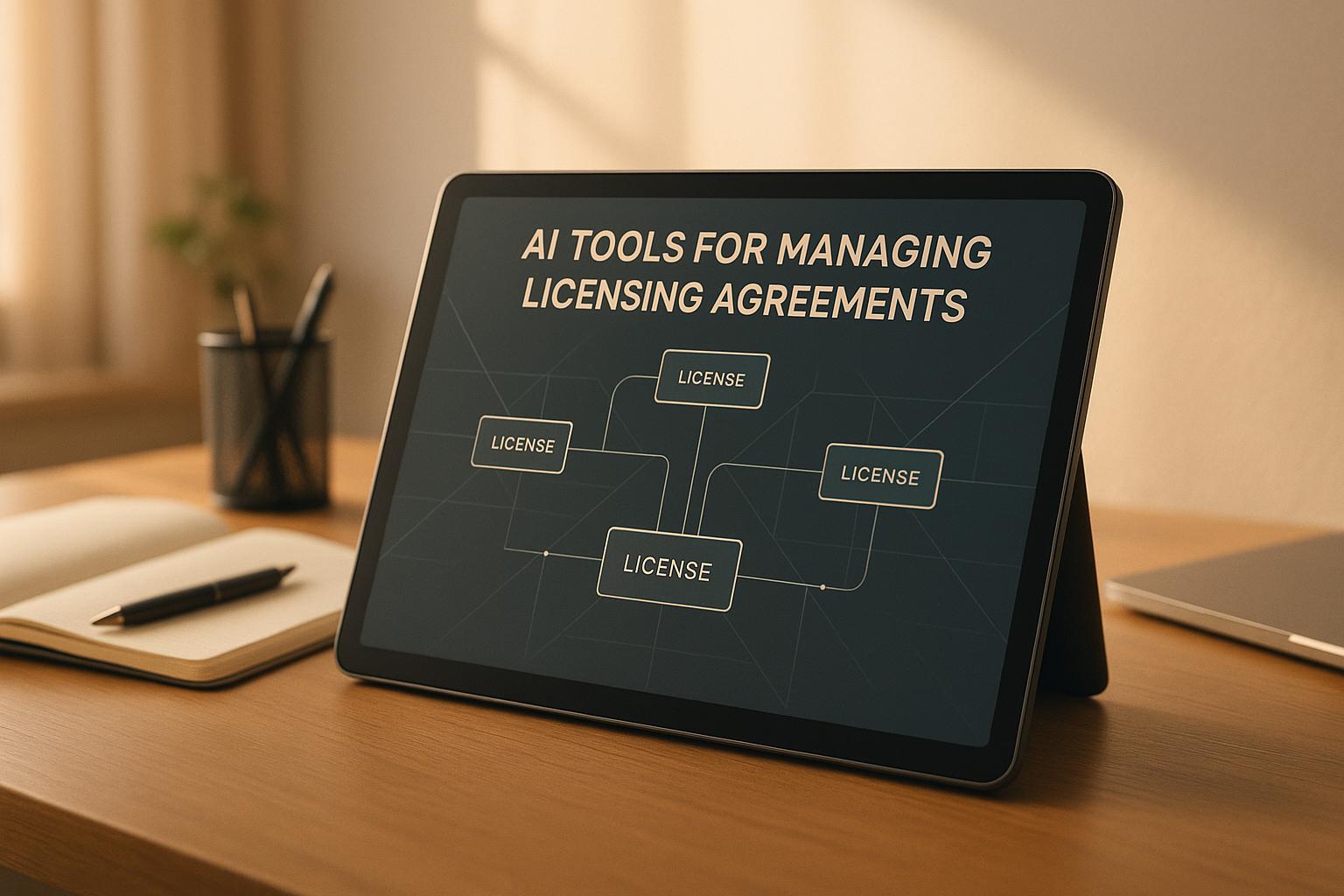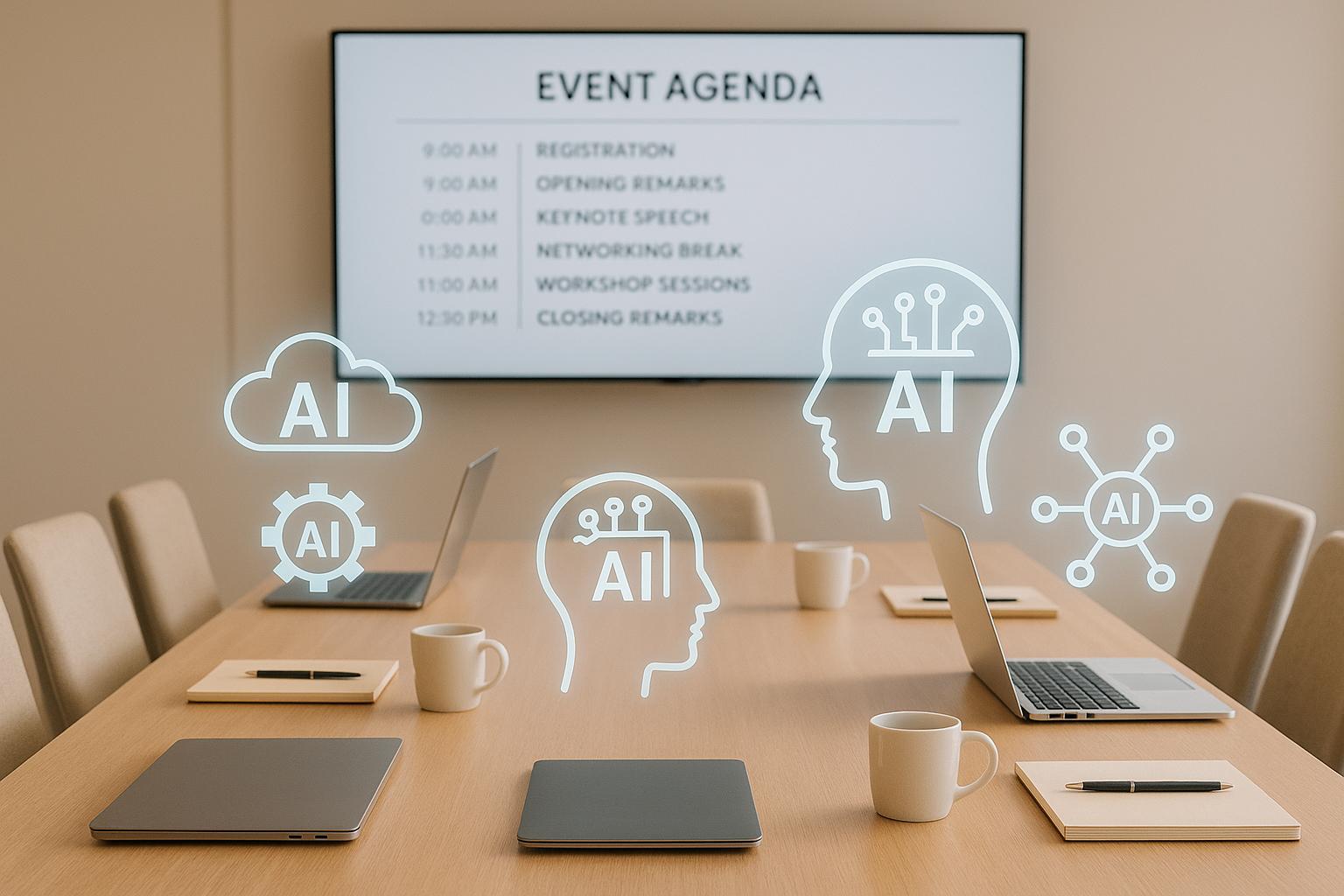How do I choose the right company to produce a press conference?

Chief Executive Officer

Choosing the right company for your press conference is critical to ensure a smooth, professional event that meets your goals. Here’s how you can make an informed decision:
-
Define Your Goals:
- Clarify the purpose of your press conference (e.g., product launch, crisis response, milestone celebration).
- Understand your audience and their expectations - journalists, consumers, or industry insiders.
- Decide on the format: in-person, hybrid, or virtual.
-
Evaluate Experience:
- Look for companies with a proven track record in producing similar events.
- Check for industry-specific expertise (e.g., tech, pharmaceutical, corporate).
- Review case studies and past projects to assess their problem-solving abilities.
-
Assess Technical Capabilities:
- Confirm they have professional-grade AV equipment (4K cameras, reliable streaming tools, high-quality audio).
- Ensure they provide backup systems for equipment and power.
- Verify their ability to handle hybrid or virtual formats seamlessly.
-
Check Services Offered:
- Look for end-to-end services, including planning, execution, and post-event analysis.
- Ensure they handle logistics like registration, speaker coaching, and audience engagement tools.
-
Request References and Testimonials:
- Contact past clients to understand the company’s communication, reliability, and ability to handle challenges.
- Read detailed reviews and ratings to identify consistent strengths or weaknesses.
-
Compare Providers:
- Use a checklist or comparison table to evaluate portfolios, technical skills, pricing, and client feedback.
- Ask targeted questions about their approach to problem-solving, media coordination, and timeline management.
Lighting & Sound Equipment for Press Conferences
Define Your Press Conference Goals
Before diving into the search for a production company, it's crucial to pinpoint your goals. These will shape every aspect of your event and help you choose the right partner to bring your vision to life.
Understand the Event's Purpose
Every press conference serves a unique purpose, and that purpose dictates the event's setup and technical requirements. Whether you're unveiling a new product, managing a crisis, or celebrating a major milestone, the event’s objective will determine the level of production detail you’ll need.
For instance, a product launch might call for dynamic visuals, such as multiple camera angles, professional-grade lighting, and crystal-clear audio. On the other hand, a crisis response press conference would prioritize simplicity, reliability, and control over flashy features. The scale of the event matters too - announcing a local business opening is far less demanding than presenting a Fortune 500 company's quarterly earnings report.
Determine Audience and Communication Goals
Knowing your audience is just as critical as defining your message. Your audience influences everything from the technical setup to how you craft your narrative.
Different audiences have different expectations. Industry insiders may want in-depth technical details and polished presentations. A consumer-focused event, however, should highlight benefits in a relatable way. Journalists, on the other hand, are often looking for clear, concise, and newsworthy content that fits a compelling story angle.
The format of your press conference should also align with your audience’s needs. In-person events are ideal for fostering personal interaction, while hybrid formats combine the benefits of live connection with broader reach. If your audience spans multiple countries, a virtual format offers flexibility and cost savings, though it requires top-notch audiovisual quality.
Here’s a thought: more than 80% of internet users spend their time online watching videos. This means your content format matters. For example, tech reporters might focus on detailed specifications, while general news outlets are more likely to latch onto the broader story. Interestingly, about 30% of press releases are part of campaigns that tailor the same core message to different outlets by adjusting the angle.
Take time to identify any additional needs your audience might have to ensure your event strategy is complete.
Account for Special Requirements
Some press conferences come with unique technical or logistical demands. Whether it’s ensuring seamless online streaming, accommodating a hybrid audience, or managing other special requirements, make sure these are identified early. Communicate these needs to your production team upfront to ensure they have the capability to meet your event’s specific demands.
Check the Company's Experience and Track Record
Once you've defined your press conference goals, the next step is evaluating the experience and history of potential production companies. Their track record can give you a clear sense of what they’re capable of delivering when it counts.
Examine Past Projects and Case Studies
Case studies are like a window into a company's expertise. Take a close look at their past projects, especially those similar to your event. Pay attention to how they tackled challenges, delivered solutions, and achieved measurable results like attendance numbers, media coverage, or audience engagement rates. These details can highlight the impact of their work and whether they can meet your expectations.
Also, don’t overlook the quality of quotes in their case studies. Look for meaningful insights from leadership that explain the thought process behind their work. A company that can articulate its approach and vision effectively is more likely to create clear and impactful messaging, rather than relying on vague or generic praise.
Once you’ve assessed their past performance, it’s time to consider how well they understand your specific industry.
Check Industry-Specific Experience
Industry expertise is key to ensuring your press conference strikes the right chord with your audience. A company familiar with your sector will understand its unique dynamics, know the right terminology, and craft messages that resonate.
Different industries demand different approaches. For example, a pharmaceutical company announcing clinical trial results requires a team that understands regulatory compliance and can present complex scientific data clearly. On the other hand, a tech startup launching a new app might need a company skilled in highlighting engaging product features. Review how potential production companies adapt their strategies to match the needs of various industries.
Additionally, they should know how to frame your announcement in a way that appeals to both niche industry analysts and general business reporters. Look for companies that demonstrate an awareness of your industry’s news cycle and understand what makes a story "newsworthy." This might mean connecting your announcement to broader trends or addressing pressing market challenges.
Review Technical Capabilities and Service Offerings
Once you've confirmed a company's expertise in your industry, it's time to dive into their technical capabilities and service offerings. The ideal production partner should have the tools and services needed to manage every detail of your press conference. Let’s break down what you should focus on, starting with their AV capabilities.
Check AV Equipment and Technical Resources
Ask for a detailed inventory of their AV equipment. This should include professional-grade cameras, advanced lighting setups, high-quality audio systems, and live streaming tools. Modern press conferences often require multiple camera angles, wireless microphones for interactive Q&A sessions, and high-definition displays for presentations.
Pay close attention to their live streaming setup. With hybrid events now standard, it’s crucial they can deliver broadcast-quality streams to virtual attendees while ensuring crystal-clear audio for those in the room. Be sure to ask about their internet redundancy systems - reliable providers will have backup connections to prevent any streaming hiccups.
Also, make sure their stage lighting is optimized for both in-person audiences and camera feeds, ensuring a polished and professional appearance.
Review End-to-End Services
A great production company offers more than just AV support - they provide full-service solutions. Look for services that cover every stage of the event, from pre-event planning to post-event analysis. This includes agenda creation, venue selection, technical rehearsals, and even speaker coaching. After the event, they should be able to provide audience engagement metrics, media tracking, and access to recorded content.
Additionally, confirm their ability to handle logistics like attendee registration, sponsor coordination, and interactive tools for audience participation. A provider offering seamless, integrated services will make it much easier to achieve your event goals.
Confirm Contingency and Risk Management
Press conferences are high-stakes events, so having a solid contingency plan is non-negotiable. Make sure the company has backup AV equipment, including cameras, microphones, and streaming devices. They should also provide power redundancy options like UPS systems and generators, along with clear protocols for switching to backup systems if needed.
Ask about their plans for weather-related disruptions and ensure they have comprehensive insurance coverage. This should include protection for equipment damage, venue issues, and potential accidents. Knowing they have these safeguards in place not only protects your event but also shows they take their responsibilities seriously.
sbb-itb-ae35a94
Request References and Testimonials
Once you've assessed a company's technical skills, the next step is to confirm their capabilities through real-world client experiences. References and testimonials provide a window into how a company operates when it truly counts, helping you determine if their polished pitch matches actual performance.
Verifying a vendor's track record with past client feedback ensures they can deliver the consistent quality needed for a successful press conference.
Contact Past Clients
Reaching out to former clients is one of the most reliable ways to get an honest assessment of a company's performance. When requesting references, ask for contacts from events similar to your press conference - such as corporate announcements, product launches, or media-centric events held recently.
During these conversations, focus on key aspects like:
- How well the team communicated throughout the planning process.
- Whether they met deadlines and stayed within budget.
- Their ability to handle unexpected challenges or high-pressure situations, especially during events with significant media attention.
Be sure to ask about any specific issues that arose and how the company managed them. This kind of firsthand insight is invaluable and complements the broader perspective you'll gain from online testimonials and reviews.
Review Testimonials and Ratings
While direct conversations with references give you detailed insights, online testimonials and ratings help paint a broader picture of a company's reputation. Look for testimonials that include specific details - like the client's name, event type, and date - to ensure the feedback feels credible.
"While it's tempting to make testimonials sound better, maintain their authenticity. Potential clients can often detect when feedback doesn't sound genuine."
Pay attention to reviews that speak to crucial elements like technical execution, media coordination, and audience engagement - these factors are vital for a press conference's success.
Video testimonials, in particular, can offer something written reviews can't: emotional authenticity. As highlighted by industry professionals:
"A video of a client talking about their experience will have a more compelling message. Potential clients will connect with the client and give the testimonial. They can see the happiness or satisfaction on the client's face. They can feel the emotion through the screen. The genuine emotion is conveyed, giving the testimonial a sense of authenticity."
Check multiple platforms - such as Google, Yelp, and industry-specific review sites - for a well-rounded perspective. Also, observe how the company handles feedback, both positive and negative. A thoughtful response to criticism can signal a commitment to client satisfaction and ongoing improvement.
Finally, watch for recurring issues in reviews. Consistent complaints about poor communication, missed deadlines, or hidden costs could point to deeper problems. On the flip side, frequent praise for technical skill or crisis management is a strong indicator that the company can handle the demands of your press conference.
Use Tools to Compare Providers
Once you've gathered references and testimonials, the next step is to evaluate your options systematically. Using structured tools can help you objectively compare providers and make an informed choice. This method ensures you're not just relying on feedback but also conducting thorough due diligence to find the best fit for your press conference.
Create a Provider Checklist
A checklist is a practical way to assess key factors like portfolios, technical capabilities, service range, communication, and pricing transparency. Start by confirming the basics: Does the provider have portfolios or case studies showcasing events similar in scale and type to your press conference? Look for evidence of creativity and flexibility in their past work, as well as any industry awards or certifications that highlight their expertise.
Check if their team includes skilled professionals such as AV specialists, sound engineers, and lighting designers. If your press conference involves virtual components or requires a large-scale setup, confirm they have the experience and resources to handle these specific needs.
Evaluate their ability to provide comprehensive services - from initial event design to post-event analysis. It's also worth noting whether they bring fresh ideas that align with your brand’s vision and objectives.
Communication is another critical area. Ensure they have a clear process in place, are responsive to inquiries, and assign a dedicated point of contact to your event. Flexibility is equally important - can they adapt to last-minute changes or unexpected challenges?
Lastly, examine their pricing structure. Look for detailed cost breakdowns and confirm their willingness to provide multiple quotes for comparison. Transparent pricing can save you from surprises later on.
Ask Key Questions
When meeting with potential providers, asking targeted questions will help you understand how they operate and handle the unique challenges of press conferences. For example:
-
Technical problem-solving:
- "How do you handle equipment failures during live events?"
- "What backup systems do you have in place for critical AV components?"
-
Media coordination:
- "How do you manage multiple camera feeds for both in-person and remote media?"
- "What's your process for ensuring optimal audio quality for recording and broadcast?"
-
Timeline and logistics:
- "How far in advance do you typically begin planning for a press conference?"
- "What's your standard setup timeline on event day?"
-
Crisis management:
- "Can you describe a time when you had to resolve an unexpected technical issue during a high-stakes event?"
These questions can reveal their problem-solving abilities and how well they handle pressure.
Don’t forget to ask about post-event deliverables, such as:
- "What analytics or reporting do you provide after the event?"
- "How quickly can you deliver edited footage or presentation recordings?"
Answers to these questions will help you gauge their reliability and ensure they meet your expectations for follow-up materials.
Create a Comparison Table
A comparison table is a simple yet effective way to organize your findings. It allows you to visually compare providers based on the criteria that matter most, such as experience, technical capabilities, and client feedback. Here's an example:
| Criteria | Company A | Company B | Company C |
|---|---|---|---|
| Press Conference Experience | 15+ corporate events, 3 similar scale | 8 corporate events, 1 similar scale | 20+ events, 5 similar scale |
| Technical Equipment | 4K cameras, wireless mics, LED lighting | HD cameras, standard mics, basic lighting | 4K cameras, advanced audio, smart lighting |
| Service Range | Planning through post-production | Setup and execution only | Full-service including analytics |
| Dedicated Contact | Yes – Sarah Johnson | No – rotating team | Yes – Michael Chen |
| Backup Systems | Full redundancy | Limited backups | Complete backup protocols |
| Total Investment | $12,500 | $8,900 | $15,200 |
To refine your decision further, consider assigning a score (e.g., 1–5) for each criterion. This quantitative approach can be especially helpful when multiple providers appear equally qualified. As you gather more information through follow-ups or references, update the table to get a clearer picture of which provider offers the best overall value for your event.
Conclusion: Make an Informed Decision
When selecting a provider for your press conference, aim for one whose expertise aligns closely with your event’s specific goals. A thoughtful evaluation process ensures you’re making a choice that delivers the professional results your organization expects.
Focus on providers with a proven history of handling events similar in scale and purpose to yours. Look for companies with strong client retention and a track record of success - these are indicators of reliability and expertise. Providers with experience in managing press conferences of your size and scope are better equipped to navigate the unique challenges your event may present.
It’s also essential to prioritize contingency planning and advanced technical skills. These qualities can be the difference between a smooth event and one riddled with issues. Providers who can seamlessly handle unexpected changes or technical hiccups - especially for hybrid events or live-streamed conferences - will help ensure your event runs without a hitch.
As you finalize your decision, emphasize clear communication and dedicated project management. The right provider will act as an extension of your team, fully understanding your vision and executing it effectively. This collaboration can elevate your press conference from ordinary to extraordinary.
Keep in mind that the lowest price doesn’t always equate to the best value. Instead, prioritize a provider that combines relevant experience, technical expertise, and high client satisfaction. Companies that invest in ongoing staff training and the latest AV technology are often better prepared to meet your needs.
Trust the evaluation process you’ve undertaken. By reviewing portfolios, gathering client feedback, and assessing technical capabilities, you’ve equipped yourself to choose a partner who will help your press conference achieve its goals and leave a lasting impression on your audience.
FAQs
What should I consider when choosing between in-person, hybrid, or virtual press conferences?
When choosing the right format for a press conference, it's important to think about your goals, your audience's preferences, and practical considerations.
- In-person events are ideal for major announcements where personal interaction and direct engagement make a big impact. These are perfect for creating a strong connection with attendees.
- Virtual formats shine when your audience is spread across different locations or when budget and safety take priority. They make it easy to reach a larger group without the need for travel.
- Hybrid events offer the best of both worlds, giving attendees the option to join in person or online. However, they require reliable tech support to keep communication seamless for everyone.
Take a close look at what you want to achieve, the resources you have, and what your audience prefers to pick the format that fits your event best.
How can I make sure the production company I hire is prepared to handle unexpected issues during a live press conference?
When choosing a production company for your live event, it's crucial to ensure they're prepared to tackle any unexpected challenges. Start by looking into their experience with events similar to yours. Ask about their contingency plans - do they have backup equipment ready? Is there on-site technical support available? It's also worth confirming whether they have real-time troubleshooting protocols and rely on advanced, dependable equipment that can adjust quickly if needed.
Take the time to discuss how they handle last-minute changes and whether they're familiar with the latest technologies that can add flexibility to live event management. A company with a solid track record and a proactive approach to planning will be far better equipped to manage surprises without missing a beat.
What questions should I ask a production company's past clients to evaluate their reliability and performance?
To gauge how dependable and capable a production company is, consider reaching out to their previous clients and asking:
- Did they consistently meet deadlines and deliver work that met your expectations?
- How did they manage technical challenges or handle any unexpected issues during the event?
- Based on your experience, would you recommend their services to others?
These questions can offer a clearer picture of the company's professionalism, adaptability, and ability to meet your objectives effectively.
Related Blog Posts









